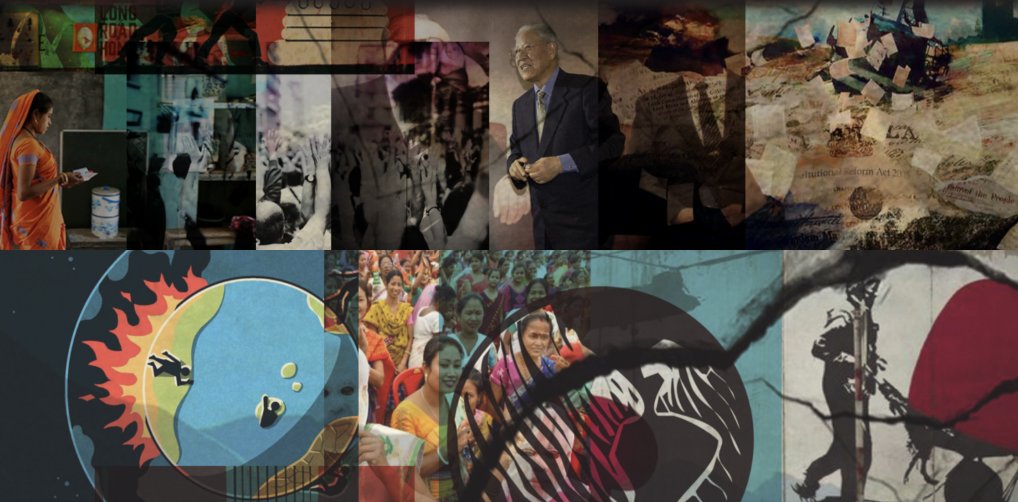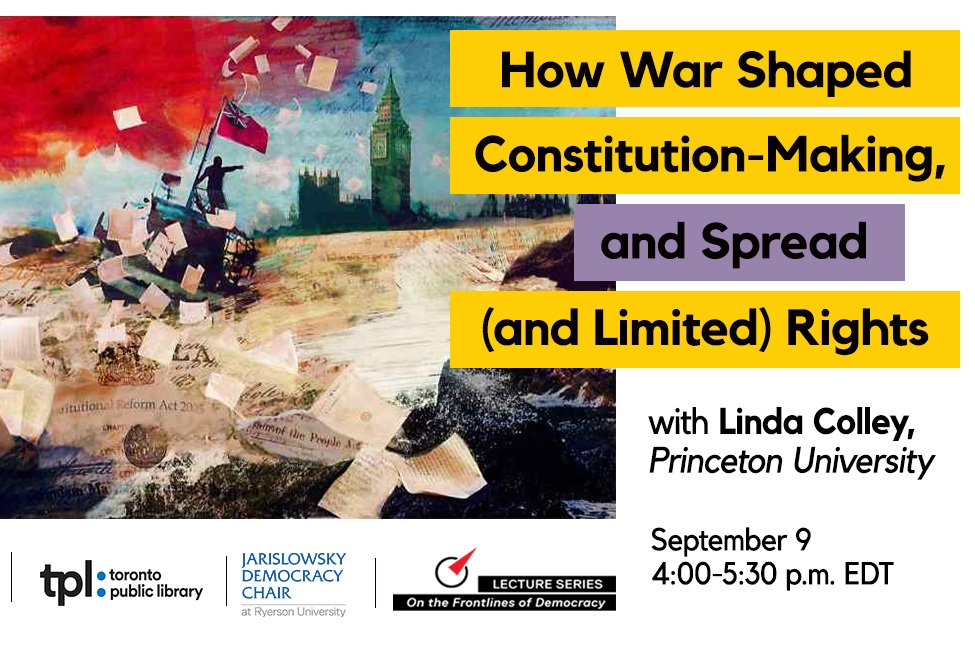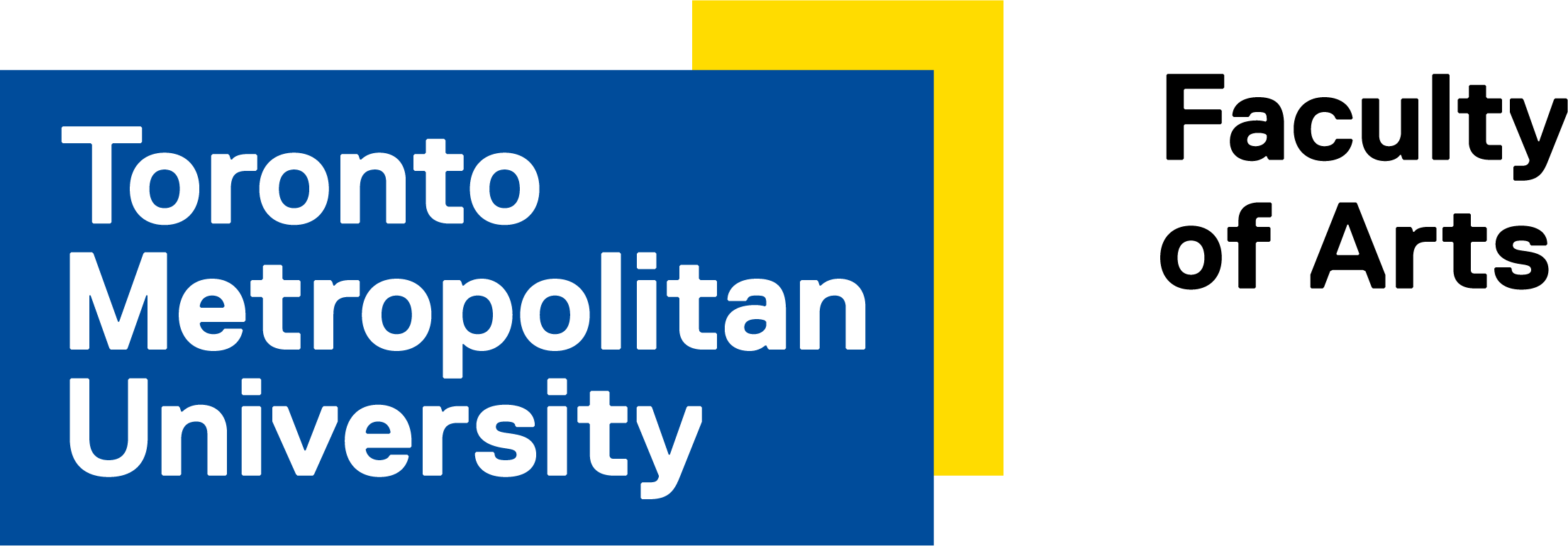
On The Frontlines of Democracy
Lecture Series
About
On the Frontlines of Democracy is a public lecture series to analyze the prospects of democracy in the twenty-first century.
Around the world, democracy faces serious challenges, old and new. Can we protect individual rights and the rule of law in an era of popular mistrust, severe partisanship and resurgent nationalism? How can our democracies reduce inequalities of power, wealth and status, defend deep diversity and confront climate change in the new digital age? Can we develop innovative strategies to revitalize civic engagement, empower public institutions and resist autocratic threats? How can we support the expansion of democracy, in an evolving post-western order, without committing the mistakes of the past?
Watch Now
Linda Colley: How War Shaped Constitution-Making and Spread (and Limited) Rights
Around the world, constitutional democracies face mounting challenges. In many countries, the resurgence of nationalism and populism threatens civil liberties and political rights, especially of minorities. An exclusive conception of the people, and a growing belief that political majorities can act as they wish, tests the checks and balances that constrain executive power and the rule of law more broadly.
Rashid Khalidi: The Crisis of Arab Democracy and Palestine
Starting in the 1970s, many autocratic regimes in the world suffered mounting crises, inaugurating democratic transitions across Latin America, Sub-Saharan Africa and Asia. The Middle East and North Africa remained a regional anomaly, however, despite promising experiments in constitutional reform in the early twentieth century and parliamentary government in several countries after WWII.
Navalny vs. Putin
Two decades ago, a minor KGB operative named Vladimir Putin captured power in Russia, gradually installing a ‘managed democracy’. Many of its citizens supported his rule, a period of relative economic prosperity, political stability and international recognition, following the chaotic demise of the Soviet Union in the 1990s. Yet economic stagnation, systematic corruption and brutal repression defined Putin’s regime over the last decade. Nationalist tropes and imperial nostalgia accompanied more aggressive interventions abroad.
The Persistent Crisis of Western Liberalism
The rise of populism in recent years, amid worsening economic inequalities, raised profound questions about the resilience of western liberal democracies. Brexit, the inauguration of Trump and growing political turmoil across Europe demonstrated their vulnerabilities. The COVID-19 pandemic has brutally exposed the failings of their underlying social contracts.
An American Reckoning
The 2020 US election raises profound questions for America. Despite fears of possible external interference, civic apathy and a raging pandemic, a groundswell of citizens, organizations and communities mobilized across the country. An historic percentage of voters cast their ballots in an election deemed the most secure in American history.
Leo Gerard: My Fight for Democracy: Reflections on 50 years of Union Activism
One of the most influential labour advocates in modern history, Leo’s career as a strong voice for working people began on the shop floor of the Inco nickel smelter in Sudbury and recently concluded with his retirement as the long-time International President of the United Steelworkers, the largest private sector union in North America. He also held a number of significant positions in the international labour movement including Vice President of the AFL-CIO and as Co-Founder of Workers Uniting – The Global Union.
What is the Trouble with Democracy Today?
The last decade has catalyzed a growing debate over the prospects of democracy. Following the Great Financial Crash of 2008, a variety of countries have experienced signs of democratic backsliding. In particular, the rise of populism, majoritarianism and nationalism has led to the erosion of civil liberties, political transparency and the rule of law in many longstanding democracies, from Britain and India to the United States.
One decade forward, two decades back
In the early 1990s, South Africa was the poster child for the revitalisation of democracy. The relatively peaceful end to formal apartheid led to a progressive and popular ANC government. Buttressed by a pathbreaking Constitution, the government seemed committed to the redistribution of power and resources and the building of a nonracial and nonsexist democracy.
Anjana Ahuja - Spike: The Virus versus the People
Hong Kong’s anti-extradition movement took the world by storm, impressing and inspiring the global public with its energy, creativity and tenacity. For China’s rulers, 2019 was pivotal: the 30th anniversary of Tiananmen, the 70th of the Maoist revolution, and the 100th anniversary of the May 4th movement, which saw thousands of students take to the streets to denounce imperial aggression, traditional Confucian values and the corruption of the old regime.











